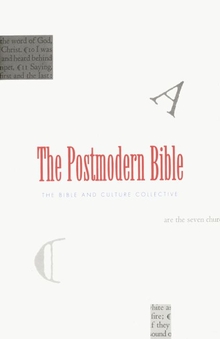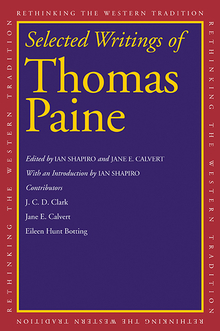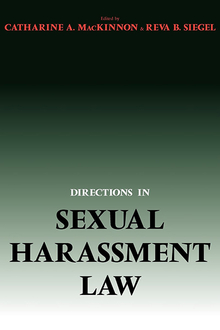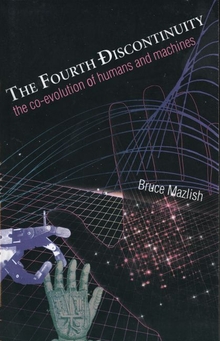The Postmodern Bible
WARNING
You are viewing an older version of the Yalebooks website. Please visit out new website with more updated information and a better user experience: https://www.yalebooks.com
Bible & Culture Collective
The burgeoning use of modern literary theory and cultural criticism in recent biblical studies has led to stimulating—but often bewildering—new readings of the Bible. This book, argued from a perspective shaped by postmodernism, is at once an accessible guide to and an engagement with various methods, theories, and critical practices transforming biblical scholarship today.
Written by a collective of cutting-edge scholars—with each page the work of multiple hands—The Postmodern Bible deliberately breaks with the individualist model of authorship that has traditionally dominated scholarship in the humanities and is itself an illustration of the postmodern transformation of biblical studies for which it argues.
The book introduces, illustrates, and critiques seven prominent strategies of reading. Several of these interpretive strategies—rhetorical criticism, structuralism and narratology, reader-response criticism, and feminist criticism—have been instrumental in the transformation of biblical studies up to now. Many—feminist and womanist criticism, ideological criticism, poststructuralism, and psychoanalytic criticism—hold promise for the continued transformation of these studies in the future. Focusing on readings from both the Hebrew Bible and the New Testament, this volume illuminates the current multidisciplinary debates emerging from postmodernism by exposing the still highly contested epistemological, political, and ethical positions in the field of biblical studies.
"The Bible and Culture Collective comprises some of the most interesting minds in biblical studies today, and their collaboration has produced a work of very rich substance. The range of coverage of postmodern topics in a single volume is unique and impressive, the contents are current and comprehensive, and the scholarly judgments are sound and defensible."—William Scott Green, University of Rochester
"The Postmodern Bible is a transformative book. It summarizes deftly and accurately the major 'postmodern' interpretive modes and demonstrates how they open up the West's central sacred text to responsible, enriching, and even crucial new readings. The Collective's use of rhetorical, feminist, and other approaches also challenges the assumptions of these critical practices themselves and invites them to self-assessment in light of the unique witness of Scripture."—Robert Detweiler, Emory University
"If you take the Bible seriously, looking at what it can mean for our postmodern times is imperative. If you take our culture seriously, assessing what the old book can mean for it is not superfluous either. This book is a handbook explaining to students and scholars how to interpret the Bible responsibly on both counts."—Mieke Bal, Amsterdam School for Cultural Analysis
"An indispensable reference work."—David Clines, Theological Book Review
"This is an ideal book for classes explaining purposes and methodology of biblical interpretation. No serious program in Biblical Studies can afford to ignore The Postmodern Bible. The book demonstrates what the Bible can mean for our times."—Mieke Bal
"A landmark work. Written collaboratively by ten scholar-critics, it is a comprehensive reference guide to several of the theoretical approaches that have begun decentering the dominant institutions of biblical interpretation. This treasury will surely be a standard reference point for biblical scholars who engage with (and probably for those who avoid) post-modern theory. . . . These chapters are never less than competent, and often sparkle with sharp, valuable insights. . . . In short, The Postmodern Bible sets a standard for comprehension and erudition in its field. . . . The Postmodern Bible should be on the shelves of all libraries, thoughtful scholars and students, and interested observers of the biblical scene."—A.K.M. Adam, Cross Currents
"Recommended for any serious student of postmodernism and/or the Bible."—D. Andrew Kille, Religious Studies Review
"This is a timely and in many ways excellent volume which will serve the advanced student well. . . . A most welcome guide to what is now an inescapable and deeply exciting, if sometimes baffling, aspect of contemporary biblical studies."—H. Pyper, Journal of Theological Studies
"The volume succeeds in its effort to critique the current practice of biblical interpretation. Happily, the lucid and convincing critique is accessible to those not well versed in postmodern thought, both students and traditionally trained scholars."—Ronald L. Farmer, Journal of Biblical Literature
"A must for all engaged in biblical interpretation. The Collective asks us to rethink the frameworks within which we work as well as how we work."—W. Lee Humphreys, Religious Studies Review
"The Postmodern Bible is an incredible (a further proliferation of superlatives would reverse the message that is being communicated, namely that this is an outstanding contribution to the field) work of committed scholarship. It will unquestionably become an indispensable resource to all persons who in one way or another are readers (as well as writers) of the Bible(s)."—Eduardo Mendieta, Journal of Hispanic/Latino Theology
"One of the most important contributions of this volume is the short, carefully selected section of 'Recommended Further Readings' with which each chapter concludes. The bibliography at the end of the book is a veritable gold mine that gives access to almost everything a student of postmodern interpretation needs to read, while the notes in the text are kept to a merciful minimum. . . . Immensely informative and thought provoking."—Sandra M. Schneiders, Interpretation
"The Postmodern Bible is an immensely learned and intellectually provocative work by some of the most talented practitioners of postmodern critique in biblical studies. In future histories of the discipline it will unquestionably be cited as the book that signaled a fundamental turning point in biblical studies."—Carol A. Newson, Religion and Literature
"I find this to be an excellent introduction to contemporary biblical criticism—the best by far."—Fernando F. Segovia, The Catholic Biblical Quarterly
Publication Date: January 31, 1997








